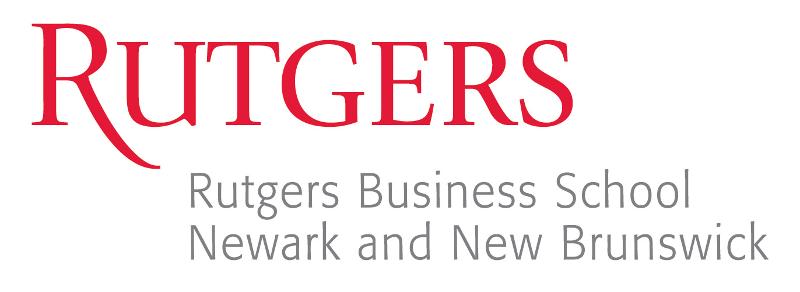Friday Morning News & Notes: MBA Leadership, Tristan Walker and More

Good morning and happy Friday!
Here are a few stories you may have missed from the week that was …
Continue reading…
Ted Rogers Offers Career Tips for the New Year

Now that winter break is officially over; it’s time to get back to work and back to school. We hope you spent the break productively, but if you didn’t, don’t worry the new semester is still a perfect time to shape up. And, according to Laura Henshaw (Co-op Coordinator at the Ted Rogers School of Management Business Career Hub), there are two things that you should do: tidy up your social media and expand your network. Continue reading…
The “Unlimited” Vacation Is Real, But Will It Take Off?

For most employees, the number of vacation days—if they’re lucky enough to get any—is set early in the year. Despite it, however, Americans have developed a propensity of skipping part of their vacation days or not using them at all.
According to a recent survey from the U.S. Travel Association’s Project Time Off, a staggering 55 percent of U.S. employees do not use all of their requisite vacation days at work. These figures are the highest they’ve ever been since the statistic has been followed. On average, this amounts to nearly four less vacation days taken compared to 1993, as shown in the Project Time Off graph below.
Financially, this means that U.S. employees are skipping a mammoth “$61.4 billion in forfeited benefits” nation-wide with 658 million unused vacation days. The survey indicates that over 200 million of those days cannot be rolled over to the following year, leaving them virtually worthless.
With the trend of used vacation days steadily slipping, a left-field solution has begun to emerge, although rather slowly: unlimited vacation days.
The notion may sound borderline-Utopian, but a small number of companies like Netflix and LinkedIn are already coming on board. The reason? Getting rid of set days may incentivize flexibility.
Peter Cappelli, the George W. Taylor Professor of Management at the Wharton School of the University of Pennsylvania, spoke on the subject recently.
“I believe the idea of ‘unlimited’ vacation is in part a way to shift the workplace culture from a sense of entitlement when it comes to days off to one that says, ‘I’m going to look after you and you look after me, and if you need to take a day off here or there, take it, and we’ll all understand,’” Cappelli writes.
The reality of more companies joining LinkedIn and Netflix, unsurprisingly, isn’t quick to develop. According to Fortune, only around 1 percent of companies offer vacation policy like this. And there is a concern that some employees would abuse this kind of system.
Cappelli takes this into account and argues, “But the statistics suggest that the opposite is true. We are not even getting people to take the vacations they are allowed to take or in certain instances, being told to take. So we’re seeing the opposite issue right now.”
Cappelli discussed the issue alongside co-host Dan O’Meara, a labor attorney and Managing Director of the Wharton Council on Employee Relations, on their SiriusXM show In The Workplace. O’Meara was less of a fan.
“Certain employees will barely want to take advantage of it and others will want to push for time off, all of the sudden,” O’Meara declares. “Because there’s no two or three week cap, you’ll deal with people who will want to make that work for them. It’s hard to imagine there won’t be employees who get annoyed when their peers can get away with it. There could be issues of equity.”
Cappelli further acknowledges that “this type of policy is clearly more suited for some workplaces than others.” So if it is a viable solution to the U.S. vacation dilemma, it likely won’t be universal any time soon.
In The Workplace airs live, 5 p.m. on Thursdays on SiriusXM Business Radio, powered by the Wharton School, channel 111.
Columbia’s Kimi Puntillo Offers Advice to MBAs Looking to Stay Ahead of the Tech Curve

Columbia Business School recently published an article by Kimi Puntillo that offers insight into how to navigate an increasingly tech-dependent job market. Puntillo — a professor of multimedia communications and journalism, as well as principal at KP Communications marketing firm — offers 6 concrete suggestions for MBA graduates:
10 Websites to Find an MBA Internship

Ah, the summer internship. Anyone who’s ever gotten their MBA will tell you that their internship a) was crucial in the process of pursuing their degree, b) was critical in helping enhance their credentials, and c) ultimately played a major role in landing their first full time job. In fact, according to the National Association of Colleges and Employers Experiential Education Survey, employers extended job offers to nearly 70 percent of their interns. Continue reading…
Rutgers Ranked by LinkedIn and Washington Monthly

Rutgers Business School, Newark and New Brunswick, has been ranked by both Washington Monthly and LinkedIn. Rutgers landed among the best schools for students interested in pursuing careers in marketing and finance, according LinkedIn and one of “America’s Best-Bang-for-the-Buck Colleges” by Washington Monthly.
LinkedIn ranked Rutgers no. 16 among the best schools in the U.S. for marketing and no. 22 among the best schools for students with ambitions of going into careers in finance. These rankings put Rutgers ahead of Penn State, Columbia University, Duke University, University of Michigan, the University of North Carolina at Chapel Hill and Emory University.
